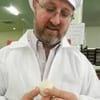How to grow broilers without the routine use of antibiotics
Published: March 7, 2022
Source : Chris Morrow / Bioproperties Pty Ltd, Australia.
For a long time antibiotics have been used in poultry and egg production but there is considerable consumer/regulatory pressure, price pressure and technical reasons why the administration of antibiotics on a routine basis needs to be phased out of these production systems.
The development of resistance in target and non-target organisms is just one reason. For exporting companies we may see trade barriers erected to products that have been produced with antibiotics to prevent spread of resistance determinants.
Solving the puzzle
The puzzle now is how to produce poultry meat and eggs without antibiotics on our current farms.
Many innovations in poultry management have had profound effects on the health of modern flocks. The implementation of biosecurity has massively decreased the movement of most pathogens except those with airborne and/or vertical transmission. The airborne infections are still particularly a problem in areas of high poultry density.
The attention to the elimination of vertically transmitted infections by breeding companies has given producers at the commercial level the option of pathogen freedom.
The implementation of single age sites and all-in, all-out programmes, improved building construction, cleaning and disinfection have all been significant steps.
The development of vaccines has allowed disease to be controlled where the infection could not be controlled. If the vaccine completely stops field strain infection this will have further advantages.
Around the world many poultry operations have been able to control all regular infections except Mycoplasma synoviae (MS). Thus control of MS has limited the ability of poultry operations finally to run without routine antibiotic programmes.
Intransience of MS
A variety of factors have contributed to the intransience of MS to effective control. There are more active reservoirs for MS (layers, etc) as control has not been as uniformly attempted as for MG (and indeed the MS status of flocks is often not understood). MS infected flocks are rarely culled. MS seems to be more transmissible between farms than MG. In many places MS free replacement stock have not been available (although this is rapidly changing with international breeding companies implementing global health standards). Finally, infected multiage farms often rapidly challenge replacement flocks on arrival.
There is also a belief in some places that MS has no impact (certainly the impact varies between strains but routine application of antibiotics will hide the effects of MS infection). This continued dependence on antibiotics may also affect the efficacy of live MG vaccination in breeders and layers.
Live MS vaccine
The live MS vaccine (MSH) has solved many of these problems. On a farm basis this has been described as displacement of wild strains but is probably more usefully looked at as increasing the resistance of vaccinated poultry to wild strain challenge.
Non-vaccinated birds have no protection against wild strain infection. MSH appears to not be horizontally transmitted between sheds unless aided by mechanical transmission (so called inadvertent vaccination).
Surveys of MSH vaccinated flocks in Iran at the end of their first production cycle demonstrate mainly vaccine strain (over 90%) in areas where breeder flock infection rate was formerly 70%. This is just after two years of use. Over longer time periods we can reasonably expect further reductions in the incidence of field strains of MS.
Although no useful immunity is passed to progeny of MSH vaccinated flocks, the prevention of vertical transmission from breeders is very useful allowing massive decreases in antibiotic requirements in the progeny.
Field studies with live MS vaccine have demonstrated that this prevention appears to be absolute (and has been used extensively in Mexico). In mycoplasma (MG and MS) free broilers horizontal transmission does not appear to be a problem with their short life span. Routine antibiotic treatment is necessary in the progeny of mycoplasma infected breeders and often the breeder themselves. Treating this massive biomass is expensive even if antibiotics are locally cheap.
These properties of MSH have also been used to control MS associated diseases like infectious synovitis, CRD (especially in broilers) and Egg Apical Abnormality, and decrease antibiotic dependence and subclinical effects on egg production and egg FCR. Furthermore, MS field strains can be demonstrated to be displaced by this vaccine. In areas where MG and MS need to be controlled MSH allows ts-11 to be more effectively used by eliminating a need for routine antibiotic applications targeting MS challenge and effects post ts-11 vaccination.
Conclusion
Vaccination is the solution for infections that cannot be consistently excluded from poultry flocks. Technology has progressively tried to provide protection against these infections and MS control was the final piece in the puzzle needed to wean poultry and egg production off routine antibiotic administration. This strategy, including MSH, is now starting to be used extensively around the world.

This article was originally published in International Poultry Production — Volume 22 Number 4.
Related topics:
Authors:
Bioproperties PTY Ltd
Recommend
Comment
Share
6 de mayo de 2022
It is impossible at the current situations in many countries especially in the third world
Recommend
Reply

Would you like to discuss another topic? Create a new post to engage with experts in the community.



















